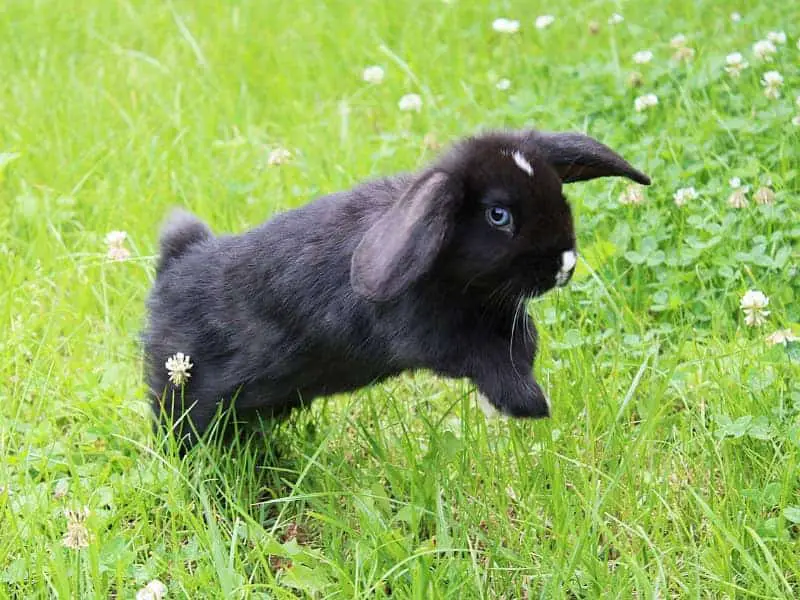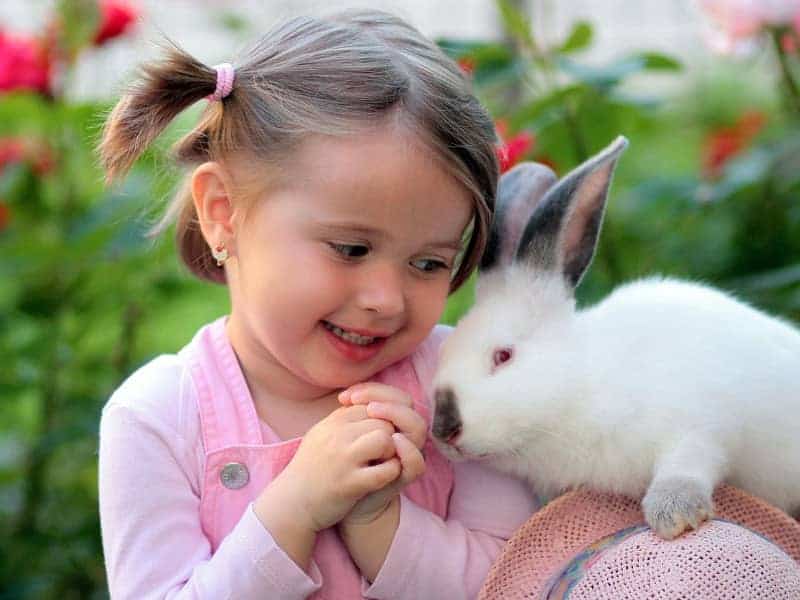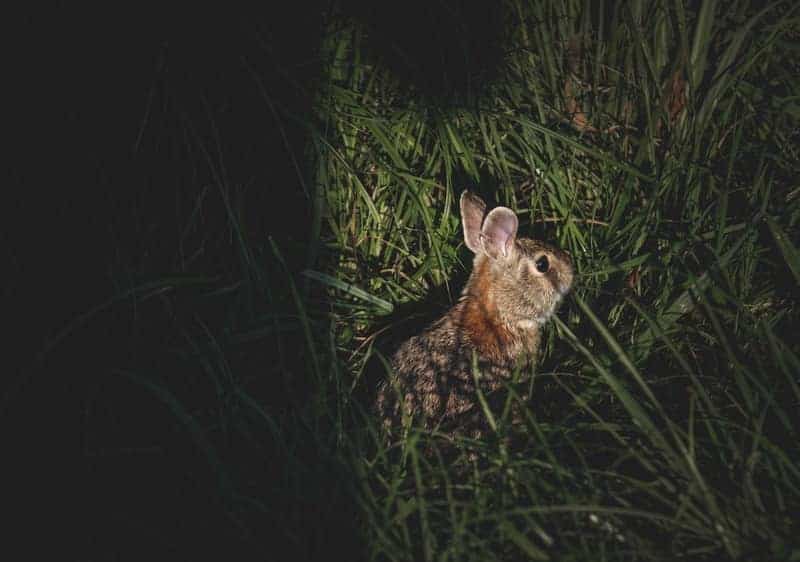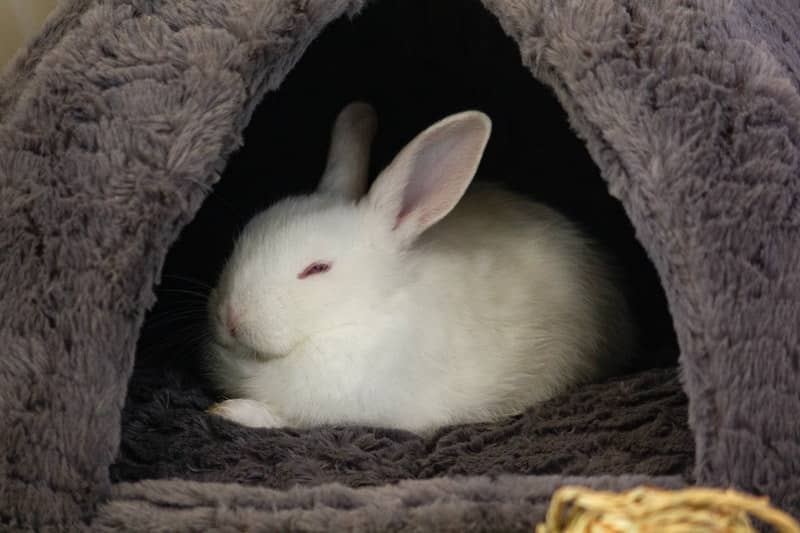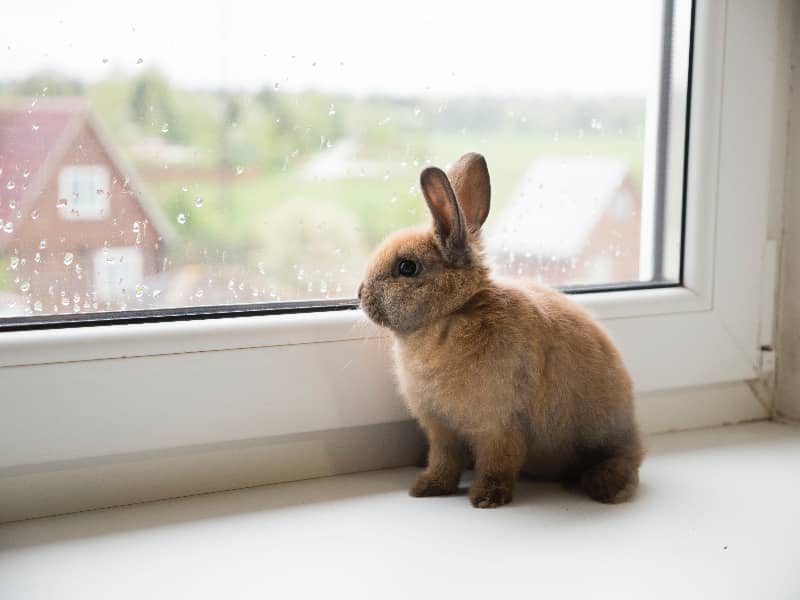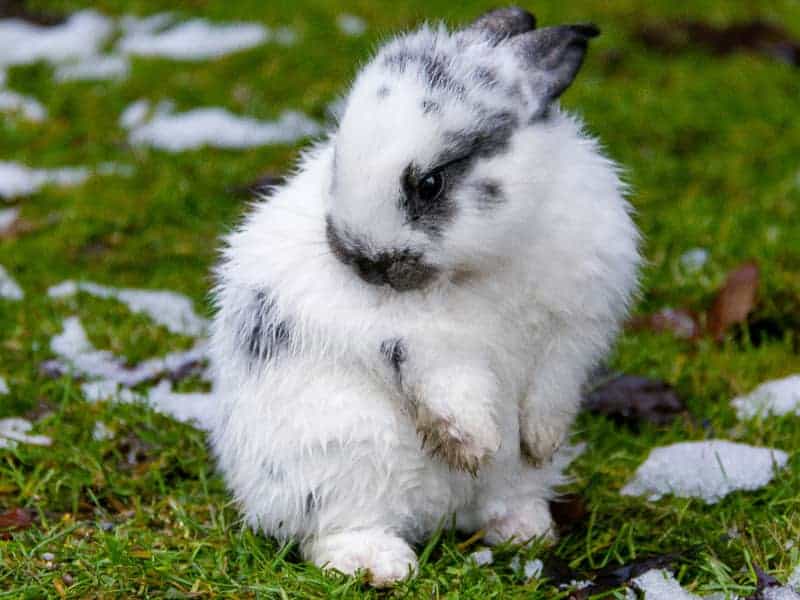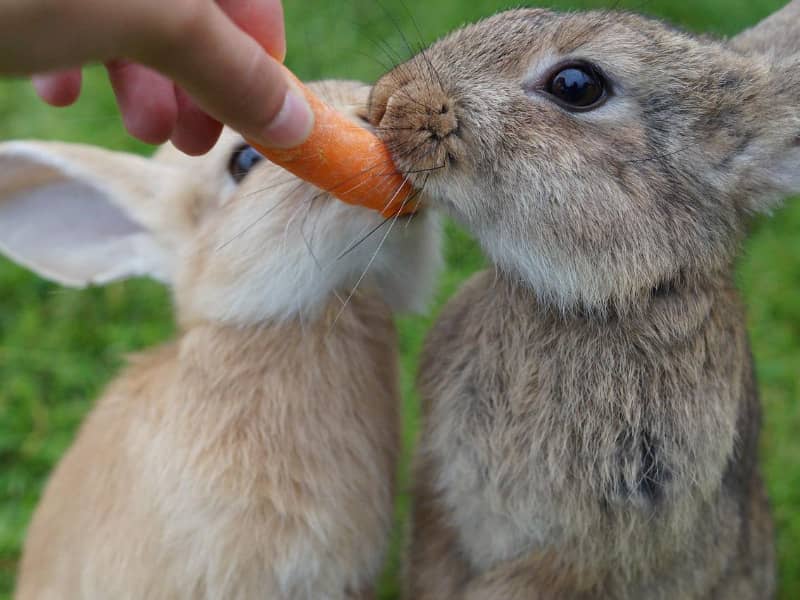
Can rabbits overeat?
In principle, rabbits can overeat, but this has less to do with the amount of food, but with a digestive disorder or a special nutritional situation. In the case of a so-called stomach overload, the food mush from the stomach no longer reached the intestine. If the rabbit then continues to eat, more and more food will understandably accumulate in the stomach. This process is very painful for the rabbit.
The reason for stomach overload is almost always hairballs that get into the stomach from grooming the coat. Another problem that can lead to this situation is dry food. The dry food swells in the stomach, preventing it from moving on to the intestines. Such a stomach overload can be life-threatening for your rabbit.
Rabbits overeaten, due to incorrect feeding
Your rabbit can overeat if you choose the wrong feeding method. A rabbit's daily diet should be at least 80 % of diet rich in crude fiber. High in crude fiber is hay and meadow grass, this should make up the bulk of the diet. 20 % of the diet can consist of leaves and herbs, as well as vegetables and a little fruit.
Rabbits do not overeat in nature; they eat frequently, but only in small amounts. Between 60 and 80 times a day, our rabbits consume small amounts of food. The special structure of the stomach, which cannot develop peristalsis because there is no muscle tissue, causes the rabbit to eat so frequently.
This is because each new intake of food triggers the onward transport of food from the stomach to the intestine. This is only possible if a very high volume of feed is ingested. For this purpose, this feed should be rich in raw fiber, ideal for this, as described above is hay and freshly cut grass. This should be available constantly and in sufficient quantity. A feed trough should never be completely empty.
When does a rabbit overeat?
If a rabbit is permanently fed too little green fodder rich in crude fiber, then it comes to overeating and subsequently to the stomach overload. If there is not enough hay or green fodder, then after a while the rabbit starts not to eat the offered food in small portions. It gobbles down the offered amount hastily and overeats with it.
Rabbit overeaten, what happens after?
The first danger in overeating is the stomach overload already described in detail above. But there is another danger. In rabbits, the raw fibers are broken down in the appendix and there the nutrients are absorbed and supplied to the animal as energy. If the animal is overfed or fed the wrong food, the appendix, which functions like a fermentation chamber, is put out of action.
This is because the balance of the intestinal flora is maintained by bacteria and protozoa that live there. However, the bacteria and protozoa in the appendix can only survive if enough raw fiber-rich food is consumed. If too many grain products or sugary things are fed, they die. Starch is converted to sugar and the sugar causes acidification to occur in the intestines.
This overacidification leads to the death of bacteria and protozoa. As a result, the raw fiber-rich diet can no longer be broken down and the rabbit lacks vital nutrients. The sugar in turn ensures that too much energy is absorbed and the rabbit becomes fat and, in extreme cases, develops diabetes.
The consequences of constant overeating
If your rabbit regularly overeats, then the feeding is always to blame for a "normal" rabbit. A feeding that is not appropriate for the species will cause different diseases to break out in your animal. Therefore, avoid feeding the industrially produced snacks to your animal. You will find information about what is contained in these products in the ingredients.
List of ingredients you should avoid
- E106 and E141
- Sugar, flour, sponge cake, sugar cane molasses, bakery products or by-products, all cereals, corn and honey.
- Vegetable and animal by-products, here waste from the food industry is used that would otherwise no longer have a purpose.
- Chopped nuts, animal protein, eggs, milk and dairy products.
The consequences that can result from feeding these ingredients are serious. Here is also a list of what can happen to your rabbit.
- Chronic diarrhea or acute diarrhea, this occurs due to feeding cereal products too rich in starch.
- Emergence of a so-called drum addiction. Due to the wrong feeding gases can not be removed, as Rabbits do not fart can. This causes the intestine to become distended and the animals have severe abdominal pain. In the process, the animals can die from shock or from a ruptured intestine.
- Your animal becomes overweight due to the wrong choice of food and moves significantly less. This can cause problems such as abscesses on the pads of the feet, as well as cardiovascular disease. Diabetes is also common in overweight rabbits.
- The rabbit's teeth are not loaded enough on a diet too rich in raw fiber and the abrasion is accordingly insufficient. The result is overlong teeth that can cause injuries to the tongue and cheek. Feed intake is then at some point no longer possible. Then only a tooth correction, which is carried out by a veterinarian, helps.
- Likewise, the nutrient supply, mainly of calcium, is reduced. Only the intake via hay or fresh green fodder ensures a sufficient calcium supply for the rabbit. Should a calcium deficiency be present, then a malocclusion of the teeth can often be seen.
Rabbits will not overeat if given the right food in sufficient quantities. Therefore, as a responsible rabbit owner, always make sure that your pet gets enough raw fiber-rich food in the form of hay and grass, as well as herbs.
Author

-
Garden animal - A life with nature
Welcome to my animal blog! My name is Dirk and I am happy to take you on my journey through the fascinating world of animals and gardening.
Born 54 years ago, I have had an insatiable curiosity for the animal world around me since childhood. Although I have moved professionally in other industries, my true passion has always been animals and nature. It is remarkable how a small garden has become such an important part of my life.
Many of my fondest memories are associated with the animals that share our home. Whether it's the curious squirrels that scurry across the trees in the morning, the colorful variety of birds that visit our feeders, or the busy bees and butterflies that pollinate our flowers, every moment with them is invaluable to me.
This blog is my contribution to share my experiences, discoveries and insights with like-minded people. Here I will share stories of unforgettable encounters with animals, give tips on gardening and creating wildlife-friendly habitats, and take you on my journeys through nature.
Thank you so much for being here!
Cordial,
Dirk aka garden animal
Last posts
- 27. February 2024PetsVeganes Hundefutter – Grün und Gesund?
- 18. January 2024ChickensOregano für Hühner
- November 27, 2023HamsterDiurnal hamsters
- November 24, 2023HamsterHamster hammock

